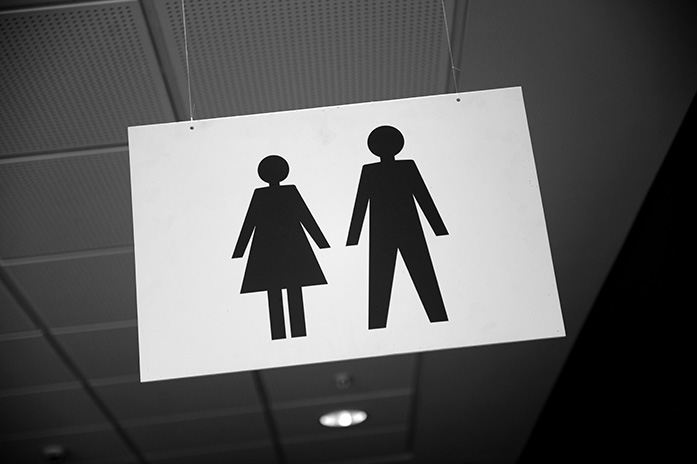By Wylliam Smith
As Sexual Assault Activism Month kicks into gear, many organizations are addressing the topic of rape. And as any student with an email here at the University of Iowa can see from the Hawk Alerts, sexual assault is a problem on campus. Still, progress is being made, with events that increase awareness of the problem and community provoke action against sexual violence.
But there is an often unheard tale woven deep in the rape culture. Stories of sexual violence that are simply not spoken about. The unsaid stories of male rape.
On April 2, I attended a screening of the documentary The Voiceless, which examines the stigma surrounding male rape. Watching the film, however disturbing the content, was refreshing because whenever I hear about male rape, it’s followed by laughs, eye-rolling, qualifiers, or straight-up dismissal.
The Voiceless, however, addressed male rape with the severity that should be accompanied when talking about it. It handled the problem of rape the way it should be handled.
The reality is that 38 percent of rape victims are men, according to the 2014 National Crime Victimization Survey. According to the documentary, 1 in 6 males are assaulted before the age of 18.
“Sexual violence does not discriminate against men,” said Vanessa McNeal, the producer of the documentary.
Society views men as strong and powerful. And when it comes to sexual aggression, it’s always men who are exemplified as the predators, the villains, or the bad guys. When this has been drilled into your head since the day you were born, it’s hard to put men on the other side of the equation.
Men are presented as invulnerable in today’s culture, so how could they possibly be put in such a vulnerable position? But what’s harder still, once a man does find himself a victim of rape, how can he possibly tell his story? Who would believe him?
In the documentary, five men tell their stories about how they were sexually assaulted. The men discuss how they dealt with their arguably taboo situation. Some repressed their emotions for years, others fell into gangs because their home lives didn’t feel safe. But they all had something in common. Whether they pressed charges or not, none of the men were able to receive legal justice.
“We live in a society that continues to state that sexual violence can’t and won’t happen to men,” McNeal said.
One of the men, Caleb Byers, said that when he went to the authorities, it actually made the situation worse. His name was dragged through the mire as people asked him such questions as “Why didn’t you fight back” or “Why did it take you so long to report the crime?”
Of course, women are asked the same questions; this argument is not suggesting anything otherwise. But there was one more accusation in particular that really disturbed me: Byers said one of the reasons his case was dropped was because he was bisexual, and authorities claimed that Byers was simply embarrassed and called it rape as a way out of the situation. Sexual orientation has absolutely no correlation with rape. And this is yet another example of blaming the victim.
As a member of the press, I feel my main job is to not only report the news but to address problems that society tries to keep hidden. To take those skeletons in the closet and drag them into the light. This particular skeleton has spent far too long hiding under the guise of myth.










